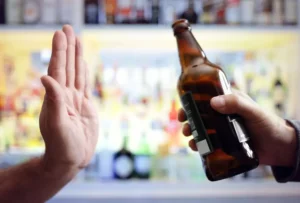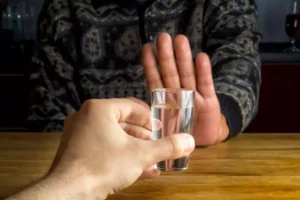
Attend events where you could meet like-minded individuals, like open-mic nights or community gatherings. Joining online social media groups can also help expand your network and forge new connections. Maintaining a healthy lifestyle can significantly improve your mental health, making it easier to cope with loneliness in recovery. If you are feeling lonely and are struggling with a substance use disorder, you are not alone.

The Connection Between Addiction and Isolation
I am fortunate enough to work in the mental health field, which has allowed me to be surrounded by people who understand and can help me stay on track. In the past, I used alcohol as a coping mechanism, but now I use healthier coping methods such as mindfulness and meditation among other tools. During recovery, it’s not uncommon to face emotional challenges that can lead to feeling distant or alone.
- Joining support groups, community activities, or hobbies can help build meaningful connections.
- Leaving loneliness behind helps you be surrounded by people who care about you and lets you experience fellowship in a healthy and loving way.
- This journey will require patience and perseverance, but your hard work will pay off as you reach new heights and achieve your goals.
- Activities that promote social interaction—such as volunteering, hobbies, or attending sober events—are effective in promoting feelings of connection and hope.
Hindered development of coping mechanisms
Engaging regularly with loved ones via communication is another vital method. It significantly helps in reducing the feelings of isolation and loneliness that can frequently occur during recovery. Consider scheduling consistent check-ins or shared activities to maintain these connections. By employing these strategies, individuals can effectively combat feelings of isolation and foster a healthier recovery journey. To effectively combat isolation during addiction recovery, several practical strategies can be employed.
Learn How to Overcome Loneliness During Addiction Recovery
Overall, this approach empowers individuals to break the cycle of negative cognition and social withdrawal, paving the way toward increased connection and support in recovery. Furthermore, social skills training within therapy helps enhance interpersonal interactions. Skills such as active listening, assertiveness, and empathy facilitate creating meaningful relationships and reduce social anxiety. Tools such as the UCLA Loneliness Scale demonstrate measurable improvements after therapy sessions.

Small gestures of kindness can go a long way toward making people feel good being around you. Learning new things is a great way to keep busy when you have nothing to do. You don’t have to go to a gym to stay fit—you can find many exercises online and do them from home. Eating and sleeping properly will also help keep your body and mind in shape to manage your HALT (Hungry, Angry, Lonely, and Tired) emotions.
- It increases the risk of conditions like depression, cardiovascular diseases, and even suicidal thoughts.
- We provide weekly individual therapy sessions for personalized support and regular group therapy sessions to foster peer connection.
- It can be an escape from uncomfortable feelings and situations that could potentially cause relapse or other complications.
Our comprehensive program combines evidence-based treatments, holistic approaches, and a supportive community to help you thrive. Transition planning https://ecosoberhouse.com/article/can-you-gain-weight-because-of-alcohol/ and support help clients create sustainable connections that last beyond their time in treatment. It is essential to understand the link between loneliness and addiction for salvation. To maintain sobriety, individuals need to build connections with others. It would help if they could join groups that support this, helping them retain and improve their overall well-being during recovery.
How Loneliness Impacts Mental Health During Recovery
To cultivate a supportive network, individuals should express their needs and Alcoholics Anonymous set boundaries when necessary. This ensures that relationships remain healthy and productive, contributing positively to the recovery process. Encouraging loved ones to participate in family therapy sessions can also enhance understanding and empathy. Effectively leveraging support networks is vital for creating a supportive environment during recovery. By sharing personal experiences and goals, individuals can invite understanding and compassion, strengthening existing bonds and creating a safety net of support. As discussed earlier, an increase in isolation and dependence on parasocial relationships can increase loneliness.
The Role of Nutrition and Exercise in Recovery
Maintaining a routine filled with self-care activities plays a crucial role in reducing feelings of loneliness during recovery. Healthy habits provide structure and purpose, fostering a sense of stability and well-being. Establishing routines that prioritize self-care helps individuals take control of their recovery journey, which can significantly reduce feelings of isolation.

Protect your mental health in recovery by remaining connected to your sober support network, family members and close friends while also cultivating new sober friendships. By participating in activities aligned with their recovery goals, individuals can form friendships in safe, sober environments. This can include joining community organizations, engaging in volunteer work, or attending sober events. Forming new relationships that support sobriety allows individuals to replace unhealthy connections with positive, fulfilling ones that contribute to their mental health. The path to recovery often involves rebuilding healthy relationships that were dissolved by the earlier addiction-related behavior, loneliness in recovery with the help of a supportive community.

This can be things like new hobbies, a new career, education, and much more. What’s important is that you have something to strive towards rather than letting SUD regain control of your life. The journey of recovery requires leaving the world of substance use behind, including any relationships that may hinder your progress. If you’ve damaged your previous relationships, it can take significant work to gain those back.